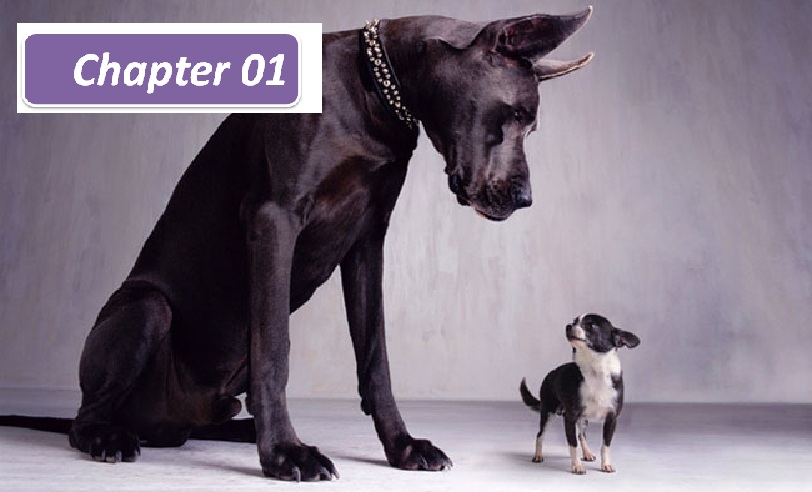
If we were asked to rate our driving ability on a scale of 1 to 10, how would we score ourselves? Maybe we are not amongst the best drivers in the world, but we probably do not believe we are the worst. In fact, we probably rate ourselves as being a little better than the average driver. The problem with this is that most people rate themselves as being a better driver than the average person. This is the Dunning-Kruger Effect, where most people overrate their abilities, with the greatest overestimation coming from those with the lowest skills.
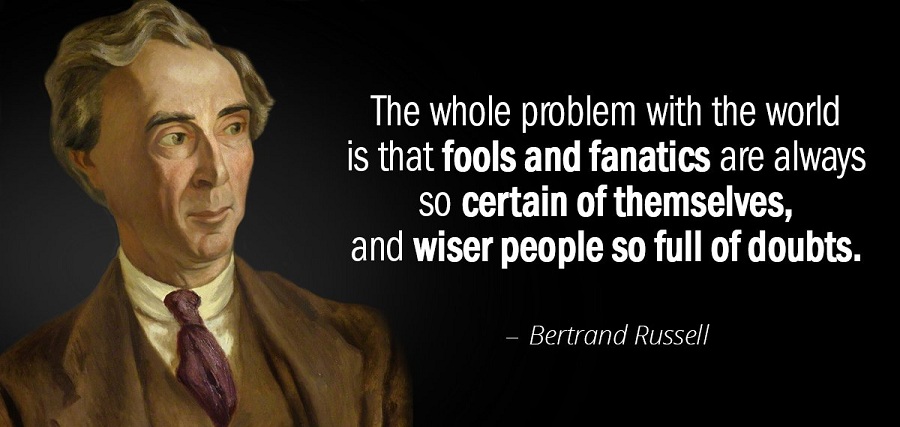
Perhaps what’s even more amazing is that the English philosopher Bertrand Russell said this long before the advent of the internet. Today, due to the joys of social media, we are regularly exposed to legions of people who believe they know what they are talking about when they do not. And, indeed, as Russell pointed out, the more clueless these people are, the more confident in their pronouncements they seem to be. People who are bad at something do believe they are good at it, and people who are good at it do believe they are bad at it. Amateurs are overconfident and experts are under confident. Newbies believe they have got it all figured out and the weathered veterans understand that nothing is really known for sure.
What Is The Dunning-Kruger Effect?
The Dunning-Kruger Effect is a cognitive bias characterized by overconfidence in one’s ability on a particular subject. The gap between perceived ability and actual ability is typically blind to the individual concerned, but often not to others around them. The Dunning-Kruger effect was first recognized in David Dunning and Justin Kruger’s 1999 study “Unskilled and Unaware of It: How Difficulties in Recognizing One’s Own Incompetence Lead to Inflated Self-Assessments”. This gap between perceived performance and actual performance can be best shown using the Dunning-Kruger Curve.
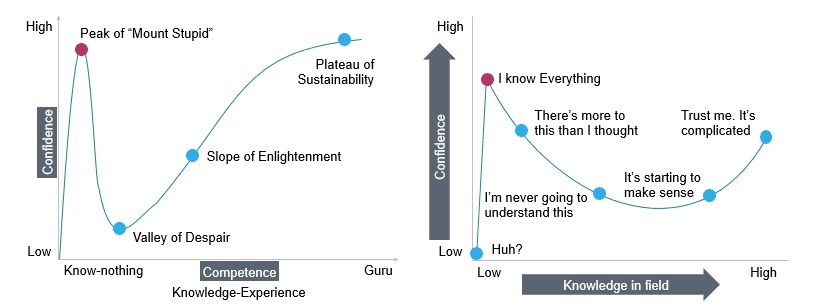
The Curve shows that people with zero experience know they are incompetent. However, those with just a little experience vastly overestimate their competence. As people get further experience, they become more aware of the gaps in their knowledge and their confidence decreases until they reach the point of average competence. After this point, as their expertise increases, so does their confidence.
The scariest thing about this effect is that we won’t even realize we are there. An important point to realize is that the only people who tend to underestimate their abilities are those that are actually the most competent and experienced. This is often called the burden of expertise.
Similar Falacies – Historical Origins
Anna Karenina principle (Leo Tolstoy- 1877): The Anna Karenina principle states that a deficiency in any one of a number of factors dooms an endeavor to failure. Consequently, a successful endeavor (subject to this principle) is one for which every possible deficiency has been avoided.
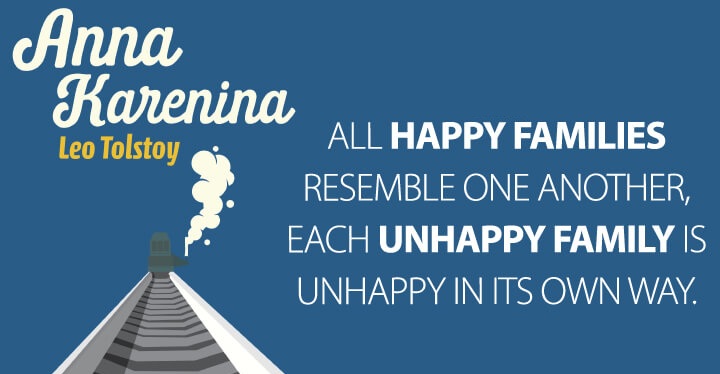
In other words: happy families share a common set of attributes which lead to happiness, while any of a variety of attributes can cause an unhappy family.
Aristotle’s version:
Much earlier, Aristotle states the same principle in the Nicomachean Ethics (Book 2):-

The Opposite of Dunning-Kruger:
The opposite of the Dunning-Kruger Effect to some degree is Imposter Syndrome.
Here, you have high-ability but believe your actual ability is very low. In a nutshell, while your ability is high, you feel like a fraud or believe that you are faking competence in some way.
Types Of Information: The Ignorance Of Ignorance
There are four types of information:
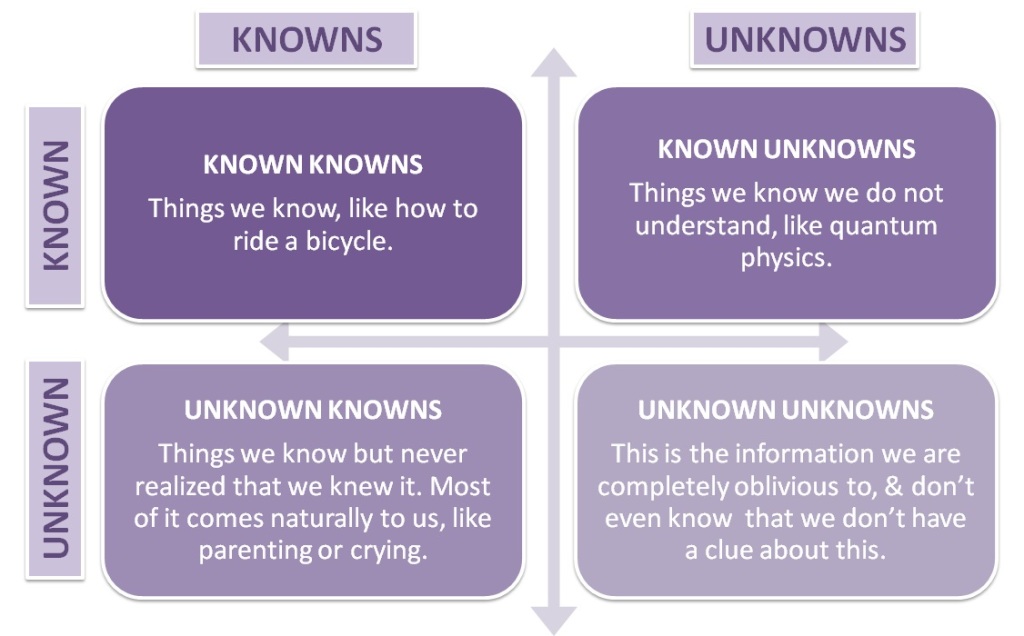
The unknown unknowns are where the Dunning-Kruger effect comes into play in the worst way. It is our tendency to overestimate our own knowledge/skills/competence and underestimate our own ignorance. The Dunning-Kruger Effect goes beyond ignorance. It presents a meta-layer of ignorance—the ignorance of our own ignorance. And that is what Russell says is so wrong with the world: that we predictably overestimate our knowledge and abilities in a way that causes more errors and graver mistakes.
Some more instances are:
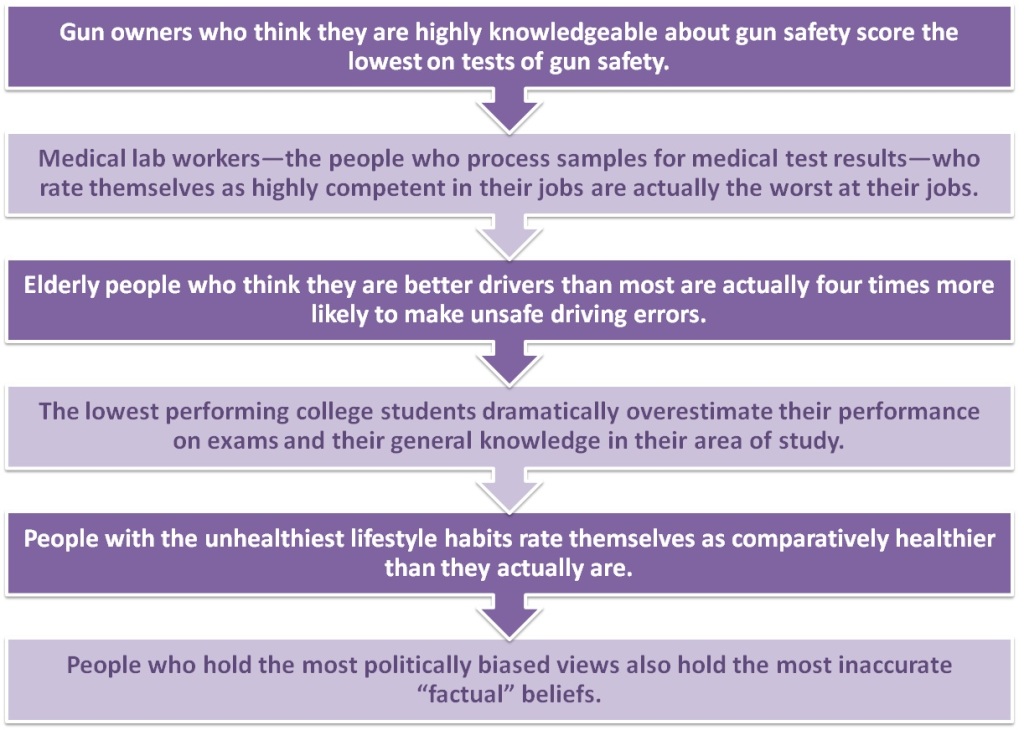
We fail to consider that we also fall victim to this blindspot. We have blind spots when it comes to our emotional awareness as well.

The Dunning-Kruger Effect In The Workplace
In many domains in life and work, success and satisfaction depend on knowledge, wisdom, or savvy in knowing which rules to follow and which strategies to pursue. People also differ widely in the knowledge and strategies they apply in these domains. When people adopt incorrect strategies, not only do they reach wrong conclusions and make unfortunate choices, but their incompetence robs them of the ability to realize it. Some situations that arise may be:-
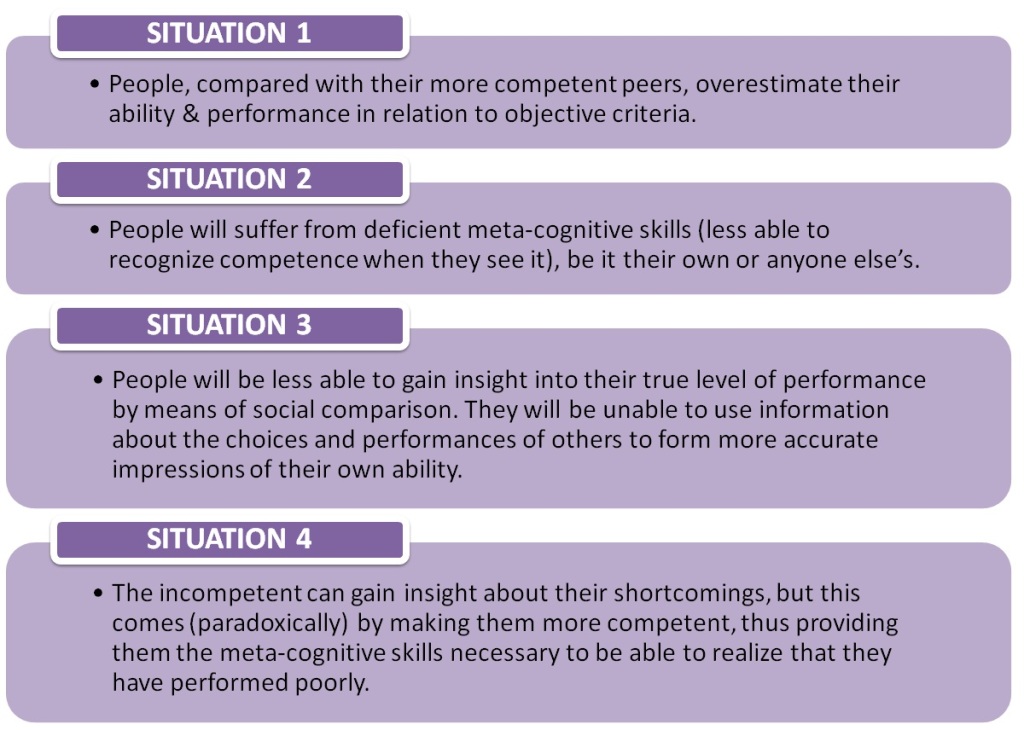
Impact Of Dunning-Kruger In The Workplace
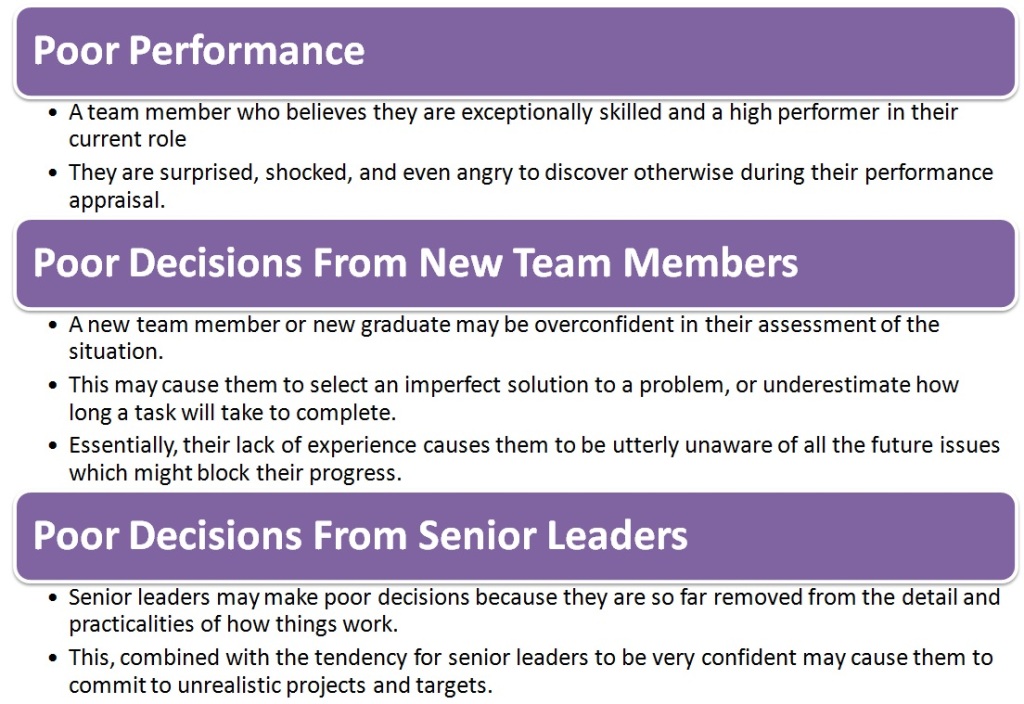
Impact Of Dunning-Kruger In Our Daily Lives
A) People think they are better than they are: They think they are better than they actually are, not that they are better than the best. In some cases it is another behavior that is in play – confidence. The perceived ability therefore is equal to how great their confidence may be. People with almost zero knowledge don’t think they “know everything.” They think they know more than they do. It’s still less than what competent people know.
B) People do not recognize competence when they see it: They do not recognize the real great people. Therefore, they cannot learn from them, cannot improve themselves, and are destined to stay as they are. Meta-cognition is this ability to think about and judge our thinking. It’s a skill separate from how well we learn (cognition).
C) People do not learn from their peers: One of the ways people gain insight into their own competence is by watching the behavior of others. Because of their difficulty recognizing competence in others, they will be unable to use information about the choices and performances of others to form more accurate impressions of their own ability.
For success to occur, many things must go right: The person must be skilled, apply effort, and perhaps be a bit lucky. For failure to occur, the lack of any one of these components is sufficient. The problem with failure is that it is difficult to figure out the root cause. Because of this, even if people receive feedback that points to a lack of skill, they may attribute it to some other factor.
***To be continued in Chapter 02 (Behaviors That Initiate The Dunning-Kruger Effect, How To Steer Away From It, Countering The Dunning-Kruger Effect, Domain Dependence, Paradox Of Overcoming Ignorance) Link to Chapter -02:
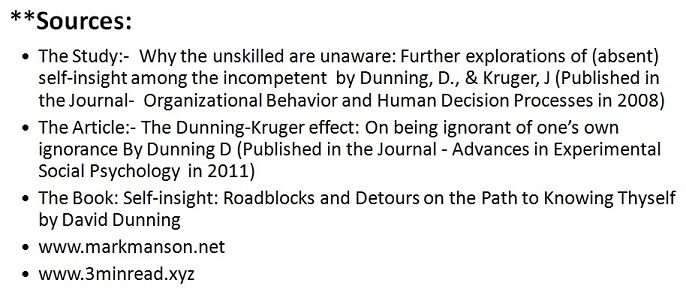
Content Curated By: Dr Shoury Kuttappa


One reply on “THE DUNNING KRUGER EFFECT: INTERPLAY OF BEHAVIORS- CHAPTER 01”
[…] THE DUNNING KRUGER EFFECT: INTERPLAY OF BEHAVIORS- CHAPTER 01 […]
LikeLike